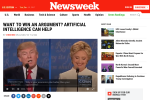
Chris Reed has written an article that has appeared with Newsweek, and today featured on its Tech & Science homepage. It focuses on the role of AI in helping to teach and to contribute to human argument & debate.

Chris Reed has written an article that has appeared with Newsweek, and today featured on its Tech & Science homepage. It focuses on the role of AI in helping to teach and to contribute to human argument & debate.
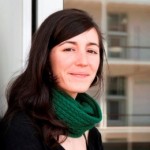
This week we have two visitors to the Centre. Nuria Franco-Guillen from Griffith University is visiting all week and is giving a seminar on Thursday morning at our regular ARGi session (10am in the ARG lab). She works with John Parkinson at Griffith on a project tracking the national conversation around key political issues and they are interested in using some of our argument mining techniques to process very large data sets.
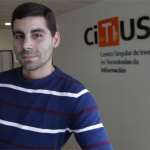 On Friday we are joined by Alejando Ramos Soto from the University of Santiago de Compostela and currently a visiting researcher at the University of Aberdeen. Following our work delivering analytics for the BBC, Alejandro is here to work on the connection between Natural Language Generation Techniques and debate analytics. He’ll be giving a talk in the ARG lab at 11.30 on Friday.
On Friday we are joined by Alejando Ramos Soto from the University of Santiago de Compostela and currently a visiting researcher at the University of Aberdeen. Following our work delivering analytics for the BBC, Alejandro is here to work on the connection between Natural Language Generation Techniques and debate analytics. He’ll be giving a talk in the ARG lab at 11.30 on Friday.
A stimulating week!

As part of the work ARG-tech has been doing with the BBC, an article on the BBC Radio 4 website entitled, 8 Ways to Win An Argument has this morning made the BBC homepage.
As well as edited copy from ARG-tech, the page also has links through to the ARG-tech developed Test Your Argument application hosted on BBC Taster.

The Centre for Argument Technology (ARG-tech) at the University of Dundee has signed an agreement with the BBC to deliver a suite of argument technology to be piloted in conjunction with BBC programming: a special edition of the Moral Maze on BBC Radio 4 broadcast at 8pm on 11 Oct 2017 and repeated on 14 Oct; a one-off TV debate hosted by Anne Robinson and broadcast at 9pm on Monday 16 Oct on BBC2, and a further episode of the Moral Maze from the BBC Archive, all tackling the issue of abortion on the occasion this month of the 50th anniversary of the Abortion Act in the UK.
Following a decade of collaboration between ARG-tech and BBC Radio 4’s Moral Maze, this new agreement will see funding of work to prepare three exciting new argument technology applications. First, a set of argument analytics to be published on the Moral Maze website will give audiences an insight into the debate, and a web page on BBC Radio 4 will use them to offer tips on how to improve their own arguments. We will also be livetweeting some of the analytics as the programmes are aired. Second, BBC Taster will host ‘Test Your Argument’ for users to try their hand at building better arguments. And third, ARG-tech will host ‘Debater,’ a system that allows users to take on the role of the chair of the Moral Maze and recreate their own new debates. For more information, check out an article commissioned by the BBC as a part of their Expert Network (at www.bbc.co.uk/news/technology-41010848) and ARG-tech’s own site at www.arg.tech.

Chris Reed has been commissioned by the BBC to write an article on Argument Technology, which appears on the BBC News website today. The article forms a part of the BBC’s Expert Network, whereby background and analysis are solicited from universities, think-tanks and other organisations that can offer context and depth to content across the BBC. The piece is aimed at a general audience and offers a unique opportunity to the field for raising the profile of computational models of argument, argument mining and argument technology in general.
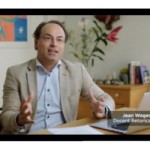
Our collaboration with Jean Wagemans of UVA continues and during his recent visit to ARGtech he also gave a talk ‘A factorial approach to argument classifaction’. Jean is currently working as a senior researcher at the Amsterdam Centre for Language and Communication (ACLC) of the same university. He is a co-author of the Handbook of Argumentation Theory and has published articles on classical dialectic and rhetoric, pragma-dialectics, and the characteristics of scientific argumentation. Find out more http://uva.academia.edu/jeanhmwagemans.

The first XCI2017 workshop co-organised by Chris Reed and Martin Peirera Ferina took place in early September during the INLG2017. The multidisciplinary event saw scientists from philosophy, computatinal linguistic and computer science take part generating an interesting and fruitful discussion. In addition to four presentations, we had an invited talk by Jose Alonso, a well-known researcher in the field of Computational Intelligence. We are delighted that the work concluded with a commitment from all participants to work together in this new and challenging area in the development of Artificial Intelligence.

Council of Coaches (Couch) is a three year European Horizon-2020 project which has just started this month at ARG-tech (€475,500 to Dundee, €3.7M total). Couch is an international collaboration between Universities and companies from the Netherlands (the coordinating partner), Belgium, Denmark, the United Kingdom, Spain and France. The project introduces a radically new virtual coaching concept based on multiple autonomous, embodied virtual coaches, which form together a personal council that coaches older adults towards a healthy lifestyle. Each coach has their own expertise, personality and style of coaching. They might not always agree with each other, but they all share a single goal: to support the user across every aspect of well-being, including physical, social, cognitive and mental support. Within Dundee the project is led by Alison Pease, with PDRA Mark Snaith and PhD student Dominic de Franco (Arg-tech), and consultants Deborah Wake and Nicolas Conway (School of Medicine). Couch will combine state of the art 3D Virtual Avatars with language and reasoning technology and apply this to the area of lifestyle and behavior change coaching.
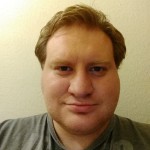
This week we welcome Dominic DeFranco who joins us as a new PhD student.
Dom is working on the EU H2020-funded ‘Council of Coaches’ project which
aims to use theories of argumentation and dialogue structure in
particular to contribute to the automation of personalized coaching
software.

Alison has recently secured funding from EPSRC on “Example-driven machine human collaboration in mathematics”, and work has now begun. In this project she will build on investigations into example-use in mathematics, and employ third party model generators, to design and build a system which can interface to online mathematical conversations. This will draw together theories of argumentation, automated reasoning systems, and ethnographical, cognitive and philosophical studies of how people do mathematics. The prototype system will be evaluated by running it on mathematical conversations in real-time, and seeing, by a variety of measures, whether mathematicians regard it as useful, and whether they are prepared to interact directly with it. The project (EP/P017320/1) will run from May, 2017 – October, 2018.